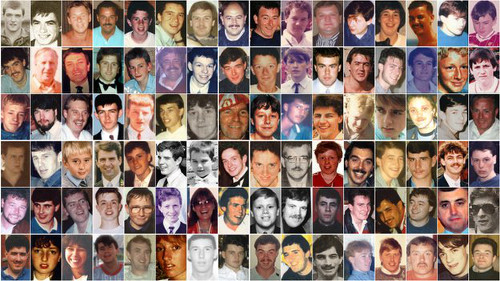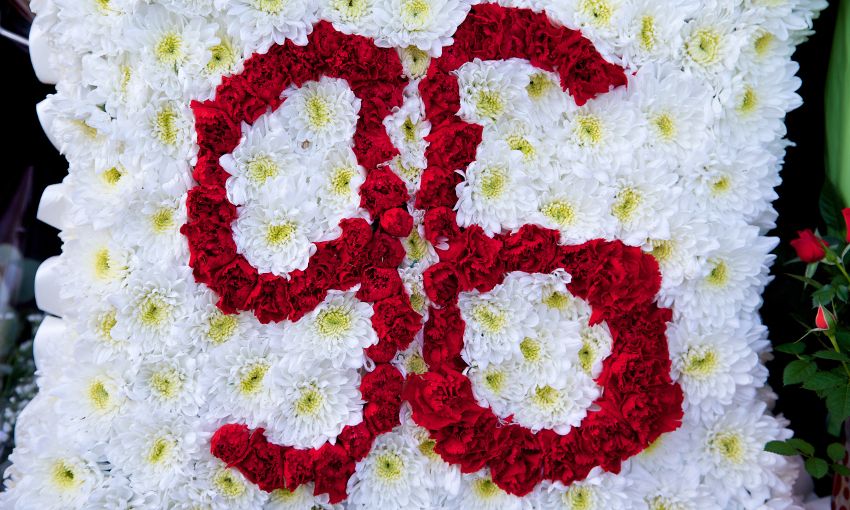Hillsborough inquests - January 25
The Hillsborough inquests commenced on March 31, 2014 and are the subject of reporting restrictions that have been imposed by the Attorney General's office. Liverpool Football Club is respectful of these restrictions and will therefore only be making available updates from other media channels for the duration of the inquest.

The report below - and the witness testimony contained within it - does not necessarily reflect the views of Liverpool FC. Please be aware that the reports on these pages will contain evidence about the day of the disaster which may be distressing.
To view archive reports from each day of the inquest hearings, click here.
Courtesy of the Liverpool Echo - January 25
The Hillsborough inquests jury was today told that hooliganism did not cause the disaster - but may have been relevant to the way the match was policed.
Coroner Sir John Goldring began his summing up of the inquests into the 96 deaths today - about 21 months after the inquests started.
After taking the jury of seven women and three men through the 14 general questions and 96 individual questionnaires they would have to complete as part of their determinations, he began to recap evidence on the topic of stadium safety.
Sir John told the court, in Birchwood Park, Warrington, he wished to address the theme of hooliganism.
He said: “Nobody suggests that the Hillsborough disaster was caused by hooliganism.”
But, the coroner said that hooliganism was a problem in English football in the 1970s and 1980s.
He said: “You may think that the fear of hooliganism was a powerful factor in the approach of the police in general.
“You may also think that this fear played on the minds of individual officers, although you will need to consider their evidence separately.”
He said hooliganism was relevant to the design of the stadium and explained why the terrace was split into pens with pitch perimeter fences.
He said it was also relevant to the involvement of the police in the ground’s safety certification and to the operational orders drawn up by police when preparing for a match.
He said: “Fourth, it is relevant to the way the match on the day was policed.
“And, fifth, a matter entirely for you, it may be relevant to the approach of officers on the day of the match, for when you assess what the match commanders did or said, or how officers in front of pens three and four and elsewhere reacted to what was happening, you have to bear in mind the fear of hooliganism which was prevalent at the time.”
As he began his summing up, the coroner urged the jury to put their feelings to one side.
He said: “We’ve heard a great deal of most moving and distressing evidence.
“We would not be human if we did not feel powerful human sympathy for those touched in their different ways by the disaster and its aftermath.
“It is particularly impossible not to feel great sympathy for those who lost loved ones or to have been moved by what we heard about each of those who died during the course of the inquests.”
He added: “Whatever your feelings, you must put them to one side.
“You have to assess the evidence dispassionately and without emotion.
“Your findings should be based on that dispassionate assessment of the evidence you have heard.
“You should not make critical findings unless they are justified by the facts.
“However you should not shrink from making such judgements if they are.”
The coroner’s summing up is expected to take three weeks.
The court will then have a half term break and the jury is likely to go out to consider its verdicts on February 22.
The coroner in the Hillsborough inquests told the jury they would have to consider whether a lie told by the match commander was a deliberate attempt to blame the fans.
The inquests into the 96 deaths had previously heard evidence that when FA officials Glen Kirton and Graham Kelly visited the police control box at 3.15pm on April 15, 1989, Mr Duckenfield told them that fans had forced a gate to the stadium.
As he started his summing up today, coroner Sir John Goldring said: “Mr Duckenfield appeared, in broad terms, to accept he was not truthful to Mr Kelly and Mr Kirton of the FA when they went to the police control box.
“In broad terms he said the gate or gates had been forced.
“He did not say the police had ordered the gates to be opened.
“Mr Duckenfield at one time in the course of his evidence, described it as a lie by omission.”
The coroner told the jury: “How do you approach the topic of lies?
“Firstly, you have to be sure that Mr Duckenfield did deliberately lie. That is a matter for you and you alone to decide on the evidence.
“Secondly, if you are sure he did lie, you have to ask yourselves why.
“If it may have been for a reason, such as panic or because he was fraught or not thinking clearly, or because he was afraid that, at the time, stating the gates had been opened by the police might run the risk of public disorder, then the lie does not help you say whether he was responsible for any critical mistakes before the disaster.
“If, on the other hand, you were sure that he deliberately lied because he knew that as a result of his order to open the gates he was responsible for the crushing in the pens and the disaster which was unfolding and he was subsequently trying to blame the fans then the lie becomes relevant.
“You would be entitled to take it into consideration when deciding if he made mistakes leading to the disaster and what those mistakes were.”
Sir John told the court that when considering the question of whether 96 Liverpool fans were unlawfully killed, the jury would have to decide if former match commander David Duckenfield was responsible for manslaughter by gross negligence.
Click here to read a full transcript from January 25.



